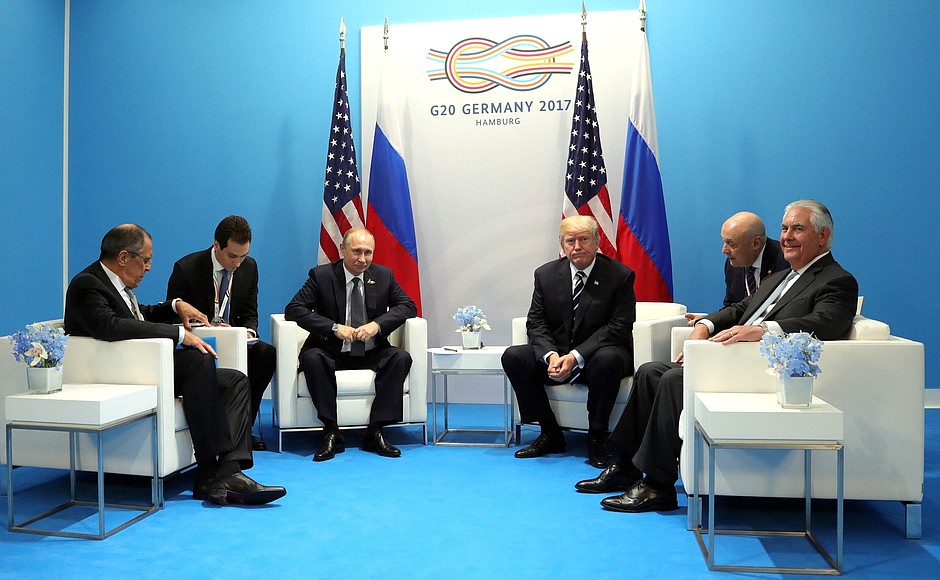 Public domain
Public domain
Prospects for US-Russian Cooperation
The Trump administration has on multiple occasions stated that it would like to mend relations with the Russian Federation. Presumably, this was at least one goal that the Trump team had in mind going into the bilateral meeting with Russian President Vladimir Putin earlier this month in Hamburg, Germany. A few hours after this meeting, President Trump took to Twitter to make it clear that the United States and Russia would not be establishing the joint cybersecurity taskforce that was discussed. An initiative like this was a non-starter, considering that both states want to maintain a unilateral cyber capacity to use against each other and any other state for purposes such as espionage.
This cyber example highlights one of the fundamental challenges facing any policymaker in the United States or Russia who is serious about forging a cooperative US-Russia relationship on geopolitical issues: the two states simply have diverging interests that make cooperation difficult. By highlighting where US and Russian interests diverge and where they do not, it is easy to appreciate just how challenging US-Russia cooperation is to formulate, despite it being a stated priority of the administration.
A significant area of disagreement between the United States and Russia is how the Minsk II agreement, signed in September 2014, should be implemented. The United States, Ukraine, and others maintain that the provisions of Minsk should be implemented as it was written, that the removal of weapons and forces from the Donbass should precede any recognition a “special status” of these ethnically Russian regions. Russia has determined that without these special status assurances, it cannot withdraw its support for rebel groups in the Donbass. Despite all stakeholders giving their approval to Minsk II nearly three years ago, it is Russia’s continued unwillingness to acquiesce to an internationally-agreed upon process of resolving the Ukraine crisis that is forestalling the conflict.
In contrast to Ukraine, we are now seeing the beginnings of US-Russian cooperation in Syria with the cease fire that was announced in Hamburg. Historically, the United States and Russia have been at odds with each other in Syria because of Russia’s support of the Assad regime despite reports of it using chemical weapons against its own people. Departing markedly from this Obama era stance on Syria, the Trump administration has decided that defeating ISIS, not ousting Assad, is the United States’ primary goal in Syria. Bracketing any implications this strategic decision might have for the US in Syria, it cannot be pure happenstance that a cease fire was brokered once the United States and Russia began to pursue more similar strategic goals.
Considering these three examples: establishing a cybersecurity taskforce, Ukraine, and Syria, it is important to question whether it is worth redefining US interests to forge cooperation with Russia. Like every decision in foreign policy, if the administration chooses to redefine US interests specifically for the sake of forging cooperation with Russia, it will carry costs. In Syria for example, one could see relenting on Assad as being complicit in the continuation of a regime that has effectively committed war crimes. Hypothetically, if the United States were to pressure Ukraine to recognize the special status of the Donbass region ahead of any Russian retreat from the region, it would undermine the ability of the US to effectively employ sanctions in the future and risk alienating many European states that would see such any concession to Russia as detrimental to their security.
Redefining US interests for the sake of a potentially better relationship that carries no guarantees for benefits is a very precarious proposition. Rather, it makes far more sense to use progress made in areas where US and Russian interests do converge to some degree or another as a pretext to begin to overcome a historically adversarial relationship and tackle critical geopolitical issues.






Great viewpoint on this very difficult situation.